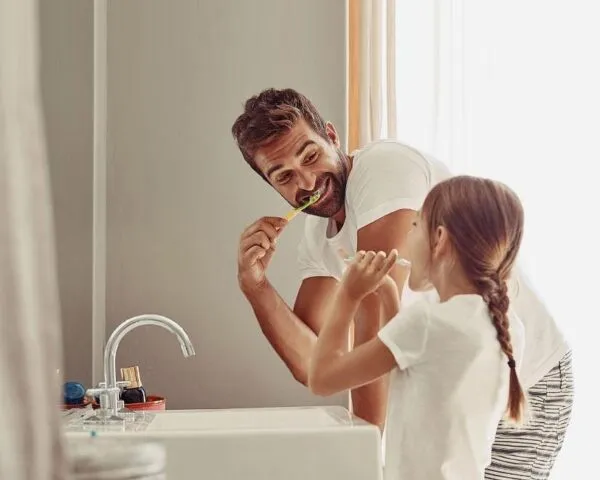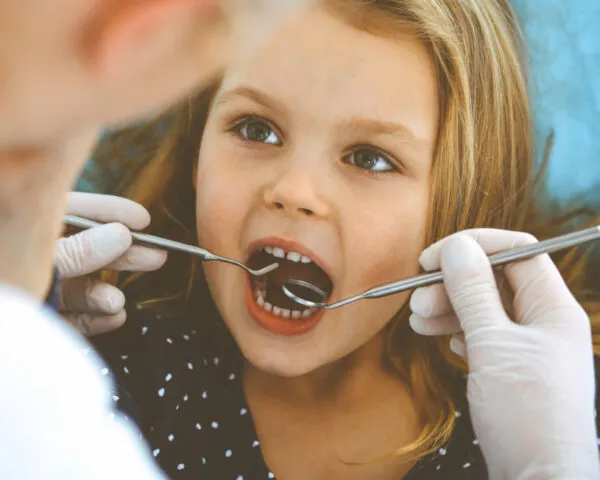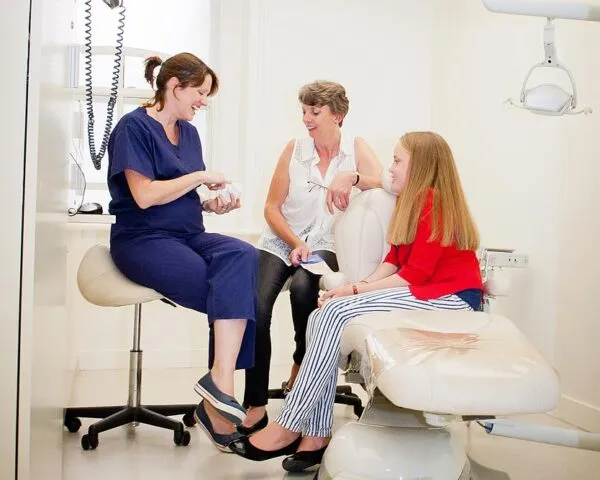What is a paediatric dentist?
A paediatric dentist commits their careers to the treatment of children. They are qualified dentists who have trained a further three years of specialist qualifications in Paediatric Dentistry.
This training provides the skills necessary to deliver the highest quality of dental care for all children from infancy to adolescence. Paediatric dentists are specially trained in advanced treatment techniques and child behaviour management to help treat anxious children, children with special health needs and to help give every child a positive and happy dental experience.

Friendly
Teams

Children’s
Offers
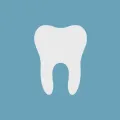
Preventive
Care
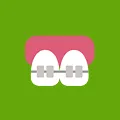
Children’s
Braces

Play
Area
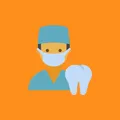
Paediatric
Dentists
Examination
The initial comprehensive examination involves a complete assessment of relevant medical and dietary history, along with any history of dental trauma. This assessment may include radiographs (x-rays) and intraoral photo records.
Make an EnquiryPreventative Care
We encourage excellent oral hygiene and work closely with our patients and their families to set up effective, fun, and personalised home dental care habits. We also offer great advice about products, technique modifications and maintenance schedules.
Make an EnquiryRestorations
Sometimes a restoration is needed alongside ongoing preventive care and advice. Restorative options include fillings, crowns and pulp treatments. Our priority is the safety, strength and longevity of each restoration.
Make an EnquiryEmergencies
Kids will be kids! That comes with bumps and bruises, so if your child’s mouth is swollen, in pain, or a tooth has been chipped, bumped or knocked out, call our team immediately and they will advise you further. If an appointment with our dentist is required, we will do our utmost and see your child as quickly as possible.
Make an EnquiryConscious Sedation
At Dental Care Ireland Cabinteely, we offer nitrous oxide and oxygen sedation (happy gas) sedation in our paediatric rooms which is a safe means of reducing pain and anxiety during dental treatment. Your child will still be aware of what is happening around them but will feel more relaxed, comfortable and floaty, and treatment can be completed in the usual manner.
Make an EnquiryGeneral Anaesthesia
Most commonly, general anaesthesia is required if a child is very young, very fearful, requires a large amount of dental treatment, or has special health care needs that will not allow them to tolerate multiple visits of treatment performed in the chair. We work in affiliation with The Beacon to offer this service.
Make an EnquiryDental Care Ireland
Paediatric Dentists
Dr Aifric Ní Chaollaí
Paediatric Dentist
Aifric qualified from Trinity College, Dublin in 2000 and completed a Masters in Paediatric Dentistry at the Leeds Dental Institute in 2009.
She was awarded membership in Paediatric Dentistry at the Royal College of Physicians and Surgeons in Glasgow in 2009 and has held posts as Paediatric Dental Surgeon at Our Lady’s Children’s Hospital, Crumlin and at Temple Street University Children’s Hospital in the past.
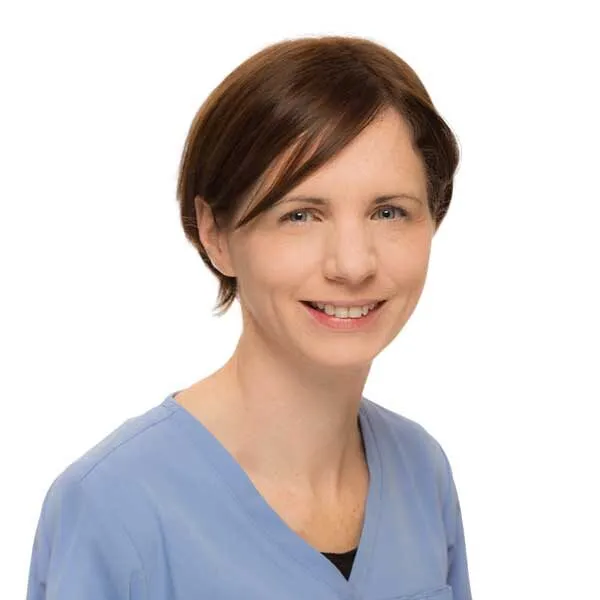
Dr Charlotte McCarra
Dentist
Charlotte graduated with honours from Trinity College Dublin in 2014. While in Trinity she was awarded the silver medal prize in orthodontics for achieving the highest result in the orthodontic final year examination.
Following graduation, Charlotte travelled to Singapore where she worked as a general dentist for one year while also travelling around South East Asia. In 2016, she returned to Ireland and worked as a Senior House Officer in Paediatric Dentistry in the Dublin Dental University Hospital. At this time, she was awarded the Deans Medal by the Royal College of Surgeons of Edinburgh for achieving the highest result in their postgraduate membership examinations.
In 2017, she was offered a one-year registrar post with Children’s Health Ireland at Crumlin where her passion for Paediatric dentistry grew.
In 2018, Charlotte returned to Trinity College and commenced a three-year speciality training program in paediatric dentistry. She is now in her final year of the program.
Charlotte is passionate about all aspects of paediatric dentistry. She strives to provide dental care that is patient-centred and is focused on achieving a positive dental experience for all children.
Memberships:
- Irish Society for Dentistry for Children
- European Academy of Paediatric Dentistry
- International Association of dental traumatology
- Irish Dental Association
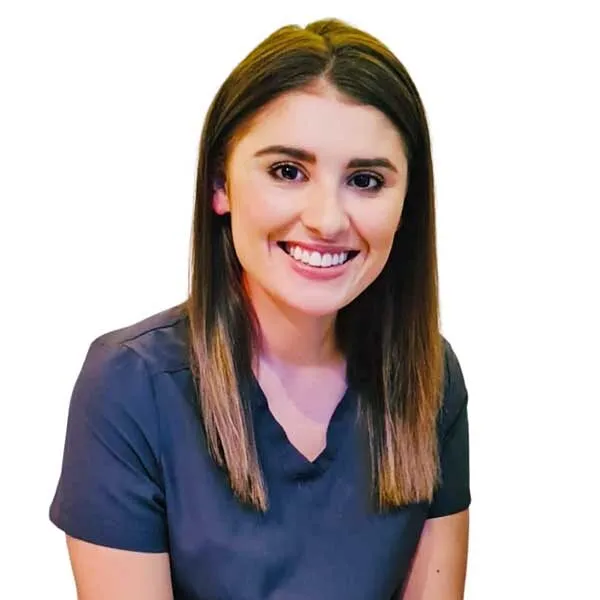
Paediatric Dentistry FAQ’s
Oral Health
Baby teeth are just as prone to cavities as adult teeth, so introducing a good brushing habit from the outset is hugely important. Teaching children to look after their baby teeth from an early age will also help pave the way for a healthy adult mouth.
Sucking is a basic instinct of infants, but prolonged non-nutritive sucking habits can cause orthodontic issues from a young age. Should you wish to give your baby a soother, we recommend only using orthodontic soothers. Dentists also encourage discontinuing the use of soothers around 18 months of age.
Tooth decay in young children is also known as baby bottle tooth decay, or more accurately called ‘early childhood caries’. There are many ways to prevent early childhood caries, including wiping your child’s gums with a damp washcloth after eating or avoiding putting anything other than formula or milk into baby bottles.
One of the most common causes of early childhood caries is frequent exposure to sugary drinks. Allowing sweetened drinks to pool around the teeth for long periods of time produces acid which weakens and eventually decays the teeth.
Giving your baby/toddler fruit juices or sugar-sweetened drinks in their feeding bottles, especially in bed, results in almost continuous bathing of the enamel with sugars and leads to severe and rapid tooth destruction.
This is typical of what dentists call an “open bite”. Sucking fingers or thumbs, placing the tongue between the teeth and holding objects between the teeth (like a pacifier) are all habits that can cause this problem. Your dentist can advise you on how best to eliminate this issue.
Black stains on children’s teeth can be the result of a combination of things, including saliva, bacteria and food. Black stains on the surface of teeth is associated with very low decay rates. No one seems to understand this association and it has been a topic of research. We recommend that if your child’s teeth appear to have black marks, book them in to see a dentist.
Visiting the Dentist
We suggest that a child is seen by a dentist before the age of 1, preferably when the first tooth arrives if not before. Taking your child to visit the dentist at this stage allows your dentist to establish a baseline record of your child’s oral health. They will also share advice and tips which will help you prevent any dental decay.
Yes – dental x-rays pose very little risk for young children. The amount of radiation in a dental x-ray is very small and considered safe for children. X-rays are taken to help inform a diagnosis and to gather more information that is not available by just looking in the mouth.
Like yourself, your child should have regular check-ups with their dentist as this will allow the dentist to monitor their development. Depending on your child’s oral health, your dentist may suggest more regular visits.
If it’s your child’s first time to the dentist and they are quite young/nervous, chances are your dentist will allow your child to become familiar with their surroundings, while discussing with you, the parent, the child’s current oral hygiene routine, diet and any issues you might be concerned about.
If you and your child are attending for a check-up, the dentist will examine the child’s mouth and gums in order to identify any issues such as decay, crowding problems, or developmental anomalies. If needed, your dentist may take an x-ray. Dental x-rays are taken to help inform a diagnosis and to gather more information that is not available by just looking in the mouth. Your dentist will then polish the child’s teeth, apply a fluoride varnish and offer you preventive hygiene and dietary advice for your child.
Oral Hygiene
It is often a good idea to introduce the concept of oral hygiene when your baby’s first tooth arrives. It is recommended to only use a toothbrush for 0-2 year old’s. After this, you should brush your children’s teeth twice a day with a smear of toothpaste.
Yes – before your baby’s teeth erupt, you can use a clean, small gauze pad or a clean dry wash cloth. The teeth and gums are wiped to remove liquid and food debris. This can be done before bedtime.
For baby’s aged 0-2, we recommend just using a toothbrush. This will clean your baby’s gums and emerging teeth, and establish an early brushing routine.
When it comes to 2-7 year old’s, you should brush every surface of every tooth for your child, using a pea-sized amount of toothpaste containing at least 1000ppm fluoride.
No matter how old your child is, you want their toothbrush to fit comfortably in their mouth and be easy to hold and manipulate. Choose a toothbrush with soft bristles — these bristles clean kids’ teeth well without being rough on their gums. A dentist recommended brand would be Curaprox. Most Dental Care Ireland practices stock this brand.
From the age of 4, the contacts between the molars tend to close, which makes it more difficult to effectively clean the back teeth with just a toothbrush, so you may need to start flossing your child’s teeth. Your dentist can advise further and demonstrate handy techniques on how best to floss your child’s teeth.
Dental Emergencies
A dental emergency can come in many forms, the main issues being:
- A tooth being knocked out
- A broken tooth due to trauma
- Severe toothache
- Swelling/Dental abscess (infection)
If your child has had an accident or is in pain, contact any Dental Care Ireland practice and they will be able to help you further.
Most dental injuries occur during contact sports, so have your child wear mouth guards during these activities to prevent fractured or knocked out teeth.
All Dental Care Ireland practices offer professionally made custom mouth guards for both adults and children.
The first thing to do when your child has a dental emergency is to stay calm and follow the below steps:
- Step 1: Pick the tooth up by the crown only (do not touch the root).
- Step 2: Clean the tooth clean if it is dirty or rinse it carefully in water (don’t forget to plug the sink!)
- Step 3: Stick the tooth back in position (adult teeth only). Never try to reinsert a baby tooth.
- Step 4: Have your child bite on a handkerchief to hold it in place.
- Step 5: Go straight to a dentist (ring ahead if at all possible).
If it’s not possible to put the tooth back in position, put the tooth in milk and go straight to a dentist (or A&E if the emergency occurs out of hours).
Tooth fragments can sometimes be glued back into position, therefore we recommend following the below steps:
- Step 1: Locate the chipped fragment.
- Step 2: Place the fragment in milk.
- Step 3: Gently rinse your child’s mouth out with warm water.
- Step 4: If there is any bleeding, apply a piece of gauze to the area until the bleeding stops.
- Step 5: Go straight to your dentist. Your dentist will need to examine the area as soon as possible, as there is always a chance that some tooth splinter has lodged into the cheek or lip. Your dentist may also be able to stick the fragment back on or build your child’s tooth up with a tooth-coloured filling
There are many reasons why your child may experience pain in their teeth. It could be emerging teeth, decay or simply food stuck in between the teeth.
In order to relieve the child of pain, we suggest giving them suitable over the counter painkillers and book an appointment to see your dentist. Our dentists are very accommodating to patients in pain, especially children. We will always do our utmost to see your child as soon as possible.
Dentists Only
To book your child a dentist appointment with Dental Care Ireland Cabinteely, please contact us on (01) 268 9566 or cabinteely@dentalcareireland.ie.



